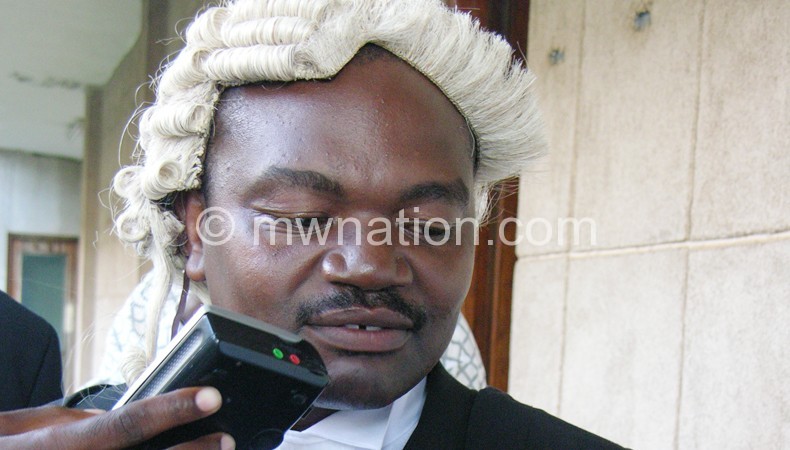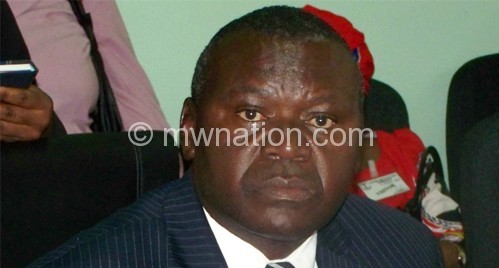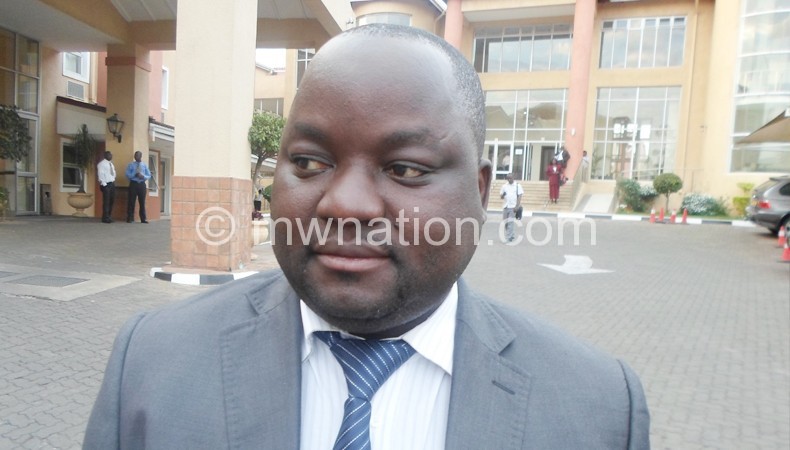Malawi moves to legitimise intelligence bureau
Malawi’s National Intelligence Bureau (NIB), which has been operating without any legal provision for almost 15 years, is expected to be established as a government institution with a mandate to prevent, contain and counter threats to national security, Weekend Nation can reveal.
The proposed law, which was gazetted in March 2014, seeks to define powers, functions and duties, besides regulating the administration and control of the bureau.

Attorney General Kalekeni Kaphale, while confirming the bill, declined to disclose when it would be tabled in Parliament.
But the main opposition party, Malawi Congress Party (MCP), has threatened to torpedo the bill when it is brought before Parliament because the NIB is duplicating other existing security bodies.
Joseph Njovuyalema, an MCP veteran lawmaker, says although he has not seen the bill, the establishment of the institution as a standalone entity would compromise the Criminal Investigation Department of the Malawi Police Service (MPS) which, he claimed, has the same mandate as NIB.

“This is just a duplication of intelligence services in the country. If the bill comes for discussion before Parliament, Malawi Congress Party will not support it,” Njobvuyalema, a former police officer, said.
However, national coordinator of the Catholic Commission for Justice and Peace, Chris Chisoni, said the NIB cannot be equated with the intelligence roles of the military and the police as these two institutions serve different interests.
“I do believe that NIB could do more than what the existing intelligence systems currently provide; as such, with an upcoming legislation, we anticipate that it will segregate the roles of the NIB and that of police and military intelligence,” said Chisoni.

NIB was established by the United Democratic Front (UDF) government in 2000 under the Office of the President and Cabinet to replace the Special Branch, which was an arm of the Malawi Police Service notorious during MCP’s rule for targeting the party’s political enemies.
Commenting on the bill, lawyer Allan Ntata, who once served as Mutharika’s legal counsel, commended the government for introducing it so as to legitimise the operations of the bureau.
“Without any ascertainable terms of reference, it was mostly operating as a ruling party attack dog, investigating and harassing political opponents,” said Ntata.
He further wondered how the operations of the bureau to date can be justified in the absence of the law.
“Can it be said that the government has been spending funds illegally for these past several years in operations and remunerations costs for this organisation?” wondered Ntata.
He cautioned that the government risks exposing itself to lawsuits for the activities of the bureau since they have been conducted illegally.
The bill gives the President powers to appoint and dismiss the bureau’s director general and his deputy. It further says a person eligible for the positions should have “high integrity and possess qualifications necessary for the performance of the duties of the office.”
Chisoni and Ntata, however, have both faulted the provisions on the appointment of the director and they have suggested the appointees need to be vetted by Parliament.
“All control and power over the activities of the bureau has been given to the President. This adds to the already excessive powers of the presidency in the country. The operations of the bureau need to be subjected to parliamentary oversights as is the case in the United States,” said Ntata.
“The fact that the bureau reports only to the president casts a dark shadow of doubt over the transparency and accountability of the bureau to the Malawian public.”
While the Bill wants the director or his deputy not to be influenced by politics, Chisoni said it would be crucial to get the right people for the job.
“It will be important indeed to have a politically independent head of NIB and that must be vetted by Parliament especially in ensuring that the appointed leader has prerequisite skills and professional background befitting the intelligence office.
“As per our history in Malawi, it seems anybody can do intelligence work and as such there have been cases of politicisation of intelligence work with more of witch-hunting than the actual intelligence work.
“The President, by law can appoint but Parliament must vet and then the head of NIB must have a clear line answer-ability and accountability of his operations. The office in turn, will be for the State and not for the President or the ruling party,” Chisoni said.
The current director of NIB is former Democratic Progressive Party’s spokesperson Nicholas Dausi. He was a former officer of the defunct Malawi Young Pioneers and served as bodyguard to the first president of Malawi, Dr. Kamuzu Banda.
Enoch Chihana, who chairs Parliamentary Defence and Security Committee, refused to comment on the issue “as these are matters of security”.
Since its founding, NIB has faced funding as well as political and legitimacy challenges.
At the height of the tug-of-war between former President Bingu wa Mutharika and his predecessor Bakili Muluzi in January 2005, NIB was dissolved and some of its senior officers, including its head, Chitsulo Gama, were dismissed.
The official government explanation was that the bureau was operating illegally and needed restructuring as some of its officers were poorly qualified for the task.
While some of its officers were employed from the police, others were former UDF young democrats.
The bureau was re-constituted as the Secret Intelligence Service in mid-2006, earning the criticism of the Malawi Law Society (MLS) which at the time wrote: “While appreciating the requirement of the security of the State, we wish to point out that the operationalization of the Service in the absence of legislation is unlawful.”
During debate for the 2014/15 National Budget last year, the Legal Affairs Committee of Parliament expressed concerns over an allocation of K5 billion for NIB which was concealed in different budget votes, particularly, OPC’s.
Chairman of the committee, Peter Chakhwantha, pointed out that the allocations to NIB were excessive for an organisation that was not legally constituted.
It further says the bureau shall provide an advisory role to the president on security issues once the proposed bill is enacted. The law will also give the director powers to arrest anyone deemed under reasonable grounds to be a threat to national security.
It will also help with vetting investigations for persons who hold or may hold posts that require higher levels of scrutiny; for example those whose appointment is subject to formal security clearance or those who may have access to sensitive or classified.





